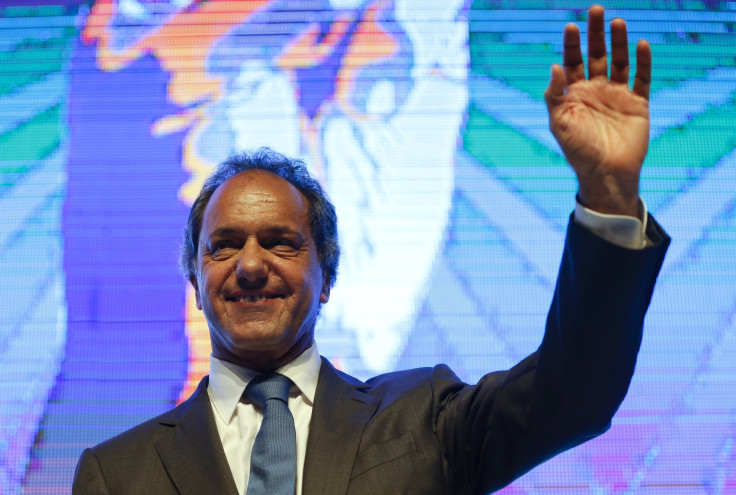Argentina Elections 2015: Voters Head To The Polls For The First Round Of Votes -- Will The Peronist Movement Win Again?

Argentina is once again deciding the question of its political identity Sunday, and the dominant political movement that has been shaping the country's politics for 70 years is on the ballot. The ideals behind that movement, known as Peronism, have populist roots and a desire for social justice, and the presidential candidate seen as most likely to win the contest is a Peronist.
Whoever wins the election Sunday, however, will inherit a difficult situation from the current president, Cristina Fernandez de Kirchner, who is also a Peronist. The country during the 12 years she and her husband have held the highest office has seen its inflation levels rise to be some of the highest in the world, as well a reduction of its federal exchange reserves, Financial Times reported.
There are six candidates running for the Argentine presidency, and half of them are Peronists. That includes the front-runner, Daniel Scioli. To avoid a runoff, he will need to receive either 45 percent of the total vote, or less but with a 10-point lead over the runner-up. Scioli is expected to get the most votes, but whether he can meet either threshold is not certain.
Despite the controversy surrounding de Kirchner, her influence in politics was enough to force Scioli to seek out her approval and the voters she could provide.
Scioli recently received that endorsement even though he has said he would be willing to lead a more conciliatory path toward relations with the United States, which de Kirchner opposes. While Peronists generally celebrate economic self-reliance in addition to their more populist ideas, Scioli has quietly shown he would be willing to end continuing disputes with U.S. bondholders who have kept the country from participating in global credit markets. He also would be open to welcoming foreign investors in Argentina. Some have criticized the de Kirchner endorsement as an indicator she will continue to make important decisions when out of office.
Aside from economic issues, de Kirchner's past year as the leader of Argentina has been tainted by conspiracy and controversy. A prosecutor who accused her of playing a part in a cover-up of investigations into five Iranians suspected of involvement in a 1994 terrorist attack on a Jewish cultural center in Argentina was found with a bullet hole in his head the day before he was supposed to present his findings to Congress. The terrorist attack was the deadliest in Argentine history, killing 84. De Kirchner was accused of derailing the criminal investigation that resulted.
Scioli has worked in the realm of politics in powerful positions since 2004, though he hasn't always been considered presidential material because of his stances on economic policies and the way they've been portrayed in the media. He has held a very influential position on his own in the Argentine government since 2007 -- the governorship of Buenos Aires province. Before that, he worked for de Kirchner's husband, the late Nestor Kirchner, who was president before her. Scioli was his vice president.
© Copyright IBTimes 2024. All rights reserved.












